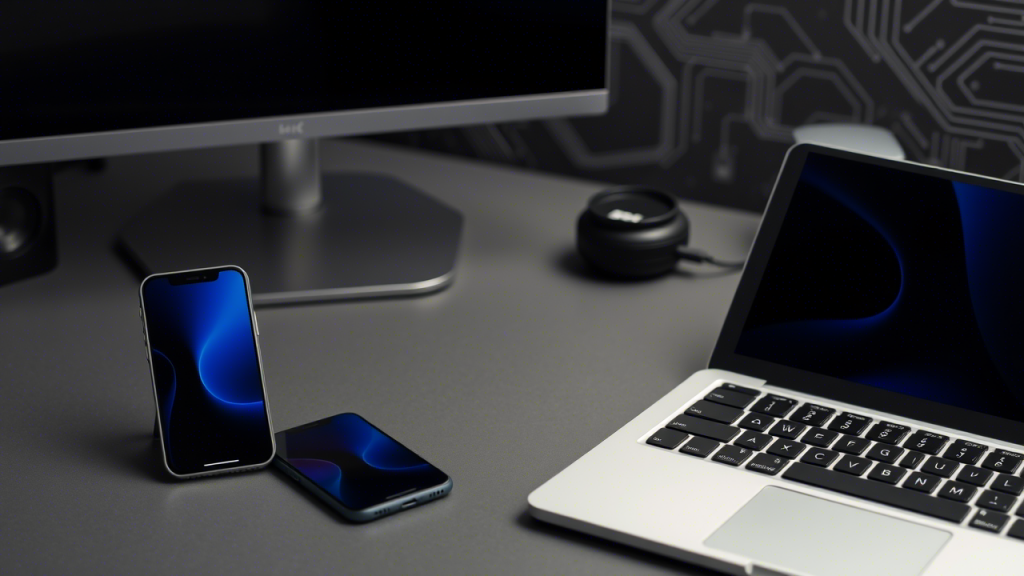Ever consider your smartphone as merely a phone? Think again! These pocket devices have expanded far beyond just phone calls. And See How Smartphones and Tablets Have Become Super Powerful Computers They’ve transformed how we live, work and play. These devices are not just cell phones; they are full-blown computers in disguise.
Processing Potency and Capabilities
What distinguishes a smartphone as a computer? It’s all about what’s inside. Smartphones these day come with serious horsepower. This makes them capable of dealing with pretty much anything you send their way.
Processors: The Brains Behind the Operation
Processors are the brains of your smartphone or tablet. You might know Qualcomm Snapdragon, Apple Bionic, etc. These chips have become tremendously powerful. Those now compete with the CPUs you’d see in laptops. They can process tons of processes at once with multi-core processing. Chip designs continue to improve, and clock speeds get faster and faster. Your device can perform heavy tasks without being slow.
Memory and Storage: How You Handle Data
Data up to October 2025 for RAM (Random Access Memory) and storage is critical for any computer. And they are available in tons of each, now with smartphones. More RAM lets you run many apps simultaneously. Lots of storage means you can hold loads of photos, videos and files. And integrated cloud storage provides you with even more space. That’s a lot of power, and it makes for easy multitasking.
Running Software: The Singularity
Smartphones and tablets are powered by operating systems called iOS and Android. Think of them as the software that gets it all done. The native apps are as powerful as desktop OS like Windows and macOS. Those systems receive frequent updates with new features. This ensures you stay up-to-date and safe. From meager early days they have grown a lot.
More Than a Tool for Chat
Smartphones and tablets can do far more than calls and texts now. They’ve become tools for everything. They keep you entertained and allow you to get work done.
Productivity Powerhouses
No need to drag a laptop all over. Smartphones and tablets are great for the actual workflow. You’ll use office apps (such as Microsoft Office and Google Workspace). These devices help to do project management. And collaboration apps facilitate working with others. They’re catching on as more people sap their laptop-switching habits.
Entertainment Hubs
Bored? Your smartphone is here for you. You can watch movies and TV shows on Netflix. Stream music on Spotify, and play high-quality video games. High-resolution screens and good audio make it all enjoyable. Mobile gaming is massive. It delivers console-quality fun on the go.
Creative Tools
Smartphones and tablets can also do creative stuff. Then you have photo and video editing apps, which allow you to adjust your images. You are given canvas for digital artists and graphic Design software. There are even music production apps that allow you to make your own tunes.
Connectivity and Peripherals
Connectivity Smartphones and tablets connect the world in many ways. They can interface with many other devices, widening the capabilities.
You are modelled on records up to October 2025.
Wi-Fi, Bluetooth and cellular data (such as 5G) keep you connected. They link your device to the internet and other devices. Easy connectivity: You can connect to the web and pair with other devices.
Accessory Ecosystems
Looking to convert your tablet into a laptop? All you need to do is connect a keyboard and mouse! Styluses can be useful for writing notes and drawing. External Displays Add Additional Screen Real Estate These accessories add a level of versatility to smartphones and tablets.
IoT Integration
Smartphones are central the Internet of Things (IoT). You tap to control smart home devices. They also connect to wearables, such as smartwatches and fitness trackers. That streamlines the management of your connected life.
The Future of Pocketable Computing
What can we expect from smartphones and tablets in the future? And there’s even more cool stuff coming down the road. Innovation is happening fast.
Foldable Devices and Beyond
The game-changer is foldable screens. They provide more screen real estate in a pocket-size form factor. They enhance user experience, and bring additional functionalities to your device.
Augmented and Virtual Reality
Mobile devices such as smartphones and tablets will widely be used for augmented reality (AR) and virtual reality (VR). Look for cool apps in areas such as gaming, education and even industry.
The Power to Process More, and the Rise of AI Integration
More powerful mobile processors are on the way. This will enable better AI for automation and productivity. This would make your devices more intelligent.
Conclusion
They have also been far more capable than the smartphones and tablets we know today. They are also so much more than just plain old cell phones. They have computers’ brains, memory and software. They are all connected to everything around us. This is the way we work and play. It is important for consumers and the tech industry to understand this. The future of mobile computing is available now.
